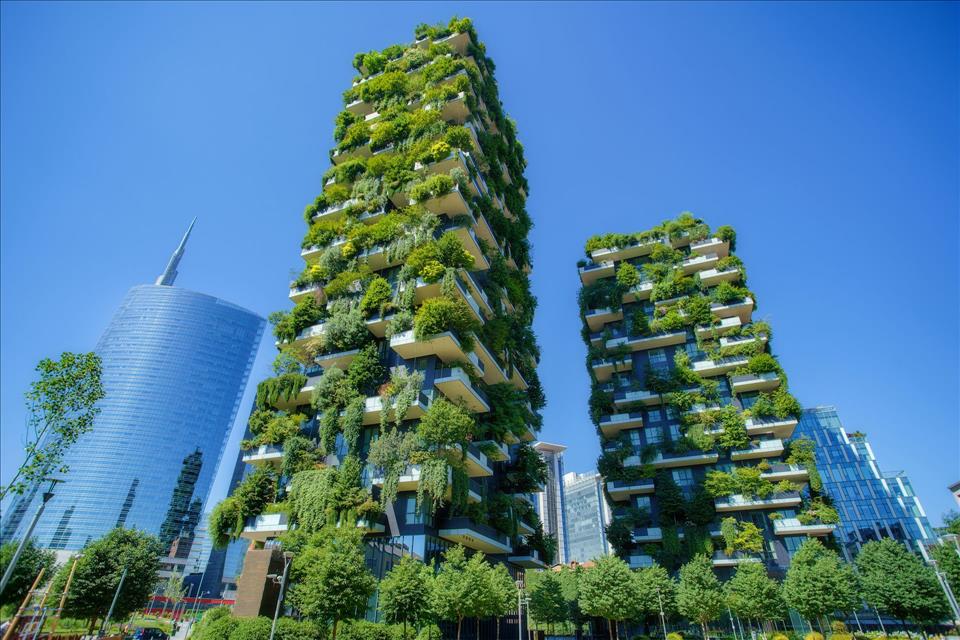
Why Building Nature-Centric Housing Involves A Mindset Shift
The UK is already one of the most nature-depleted countries in the world. According to UK government reports, nature loss drives a loss of benefits to humans, leading to increased risks of flooding, food insecurity, disease and pollution. Nature loss already contributes significantly to the declining physical and mental health of the UK population, with nature poverty varying markedly between postcodes.
In my research as an ecologist, I study how urban planning can be nature-centric. Being sensitive to the history of a place when designing housing, asking what other beings already have their homes there and how people can live alongside them, puts humans on par with other species, rather than objectifying them as lifeless “assets” .
No longer seeing humans as the centre of everything is a worldview shift that's recognised by organisations such as the UN and the European Environment Agency as essential for a sustainable civilisation. It might seem radical, but when existing approaches aren't working, you need to change tack.
Even with current environmental regulations, the UK government is failing to meet its own targets for restoring wildlife and providing clean water and air. It remains on track for just nine out of 43 environmental commitments . Environmental protection policies and their implementation are failing.
Take, for example, the concept of biodiversity net gain . This policy outlines how much habitat needs to be“restored” in exchange for developers destroying nature to build homes. Yet the promised nature restorations rarely happen .
Doubling down on this approach, under new planning-system reforms to quickly build new homes, the government is enabling developers to pool promised habitat“units” and restore them elsewhere.
But simply destroying nature in one place and rebuilding it elsewhere isn't the answer. Not least because ecosystems (such as the complex interactions between soil fungi, plants and insects) take decades to mature. Plus, people living in new homes in areas where nature has been cleared will experience fewer health benefits.
Plants grow on every surface of Milan's vertical forest tower block. MC MEDIASTUDIO/Shutterstock
Instead of treating nature something as separate from us, like a property we have a right to destroy, we can reassess our relationship to it. Nature as being an intrinsic part of us is a more scientifically accurate worldview, as well as essential for protecting it.
Last year, an international science body produced a report ratified by 147 governments, including the UK. The conclusion identified the main causes of global biodiversity loss as the disconnection from and domination over nature, the concentration of power and wealth, plus the prioritisation of short-term, individual and material gains. That report, along with many others , states the need for“fundamental system-wide shifts in views, structures and practices”.
Scaling up eco-homesMany nature-centric housing solutions already exist in Brazil, Italy and the Netherlands. The challenge is how to build them at scale, while adapting them to the nature in a local region. Housing design and surrounding areas can be tailored to help regionally rare animals like otters, certain bats as well as amphibians, insects and plants.
I recently led a workshop with experts from law, urban planning, architecture, garden design and housing policy, and they agreed that the technical expertise to build such homes already exists. What is missing, they said, is the deeper mindset shift needed to bring about such an ambitious programme of social change.
The key challenge is to expand our imaginations for how we can live more in harmony with other species and build political courage for such housing. Building these homes may take longer than the government's five-year target, but anything less will continue to drive the loss of nature on which our health and prosperity depends.
Research my colleagues and I conducted shows that promoting this nature-centric shift in worldviews must become a top priority. It goes beyond just the housing sector and relates to the design of our businesses , governance and education systems.
Without a change in underlying attitudes, environmental regulations are simply rules that get ignored, hence the poor state of our rivers and the loss of our nations plants and wildlife .
We cannot build 1.5 million homes with a casual attitude to trashing nature in the process. The real solutions to the housing crisis go beyond bricks and mortar and rules about where to put them. We need to rebuild our care and responsibility to the natural world, acknowledging nature as something we humans are deeply part of , instead of apart from.
More effective institutions and legal innovations (such as giving rights to nature) then follow from that. To solve the housing crisis in ways that are genuinely sustainable requires a shift in mindset as a prerequisite for housing development.
Don't have time to read about climate change as much as you'd like?
Get a weekly roundup in your inbox instead. Every Wednesday, The Conversation's environment editor writes Imagine, a short email that goes a little deeper into just one climate issue. Join the 45,000+ readers who've subscribed so far.

Legal Disclaimer:
MENAFN provides the
information “as is” without warranty of any kind. We do not accept
any responsibility or liability for the accuracy, content, images,
videos, licenses, completeness, legality, or reliability of the information
contained in this article. If you have any complaints or copyright
issues related to this article, kindly contact the provider above.


















Comments
No comment